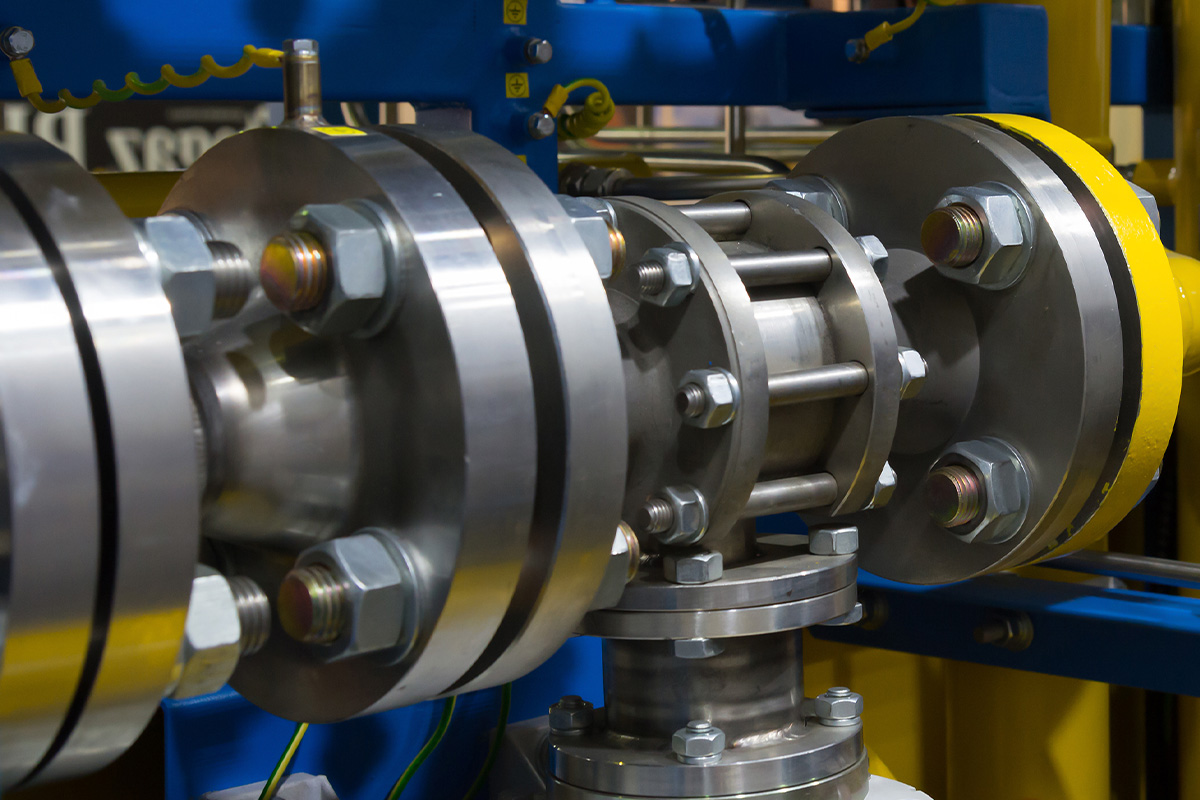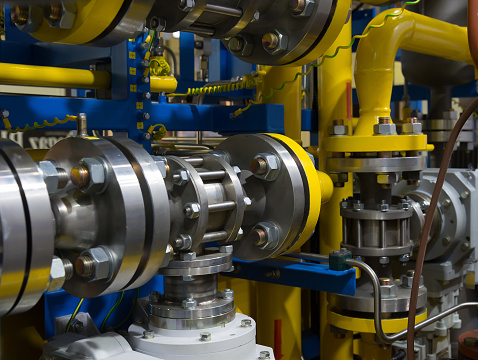
Just like your automobile requires regular oil changes to keep the engine running smoothly, industrial oilseed processing equipment like expellers and extruders depend on lubrication systems to maintain peak performance.
Failure to keep these critical systems topped off and well-maintained could leave your car broken down by the side of the road—or, in this case, shut down your entire oilseed processing operation, impeding oil production and profits.
Here’s what you need to know to keep your industrial lubrication systems flowing.
What do lubrication systems do?
The main purpose of lubrication systems is to:
- Protect moving parts that come into constant contact with each other, like gears and bearings.
- Minimize friction between rotating components so parts can spin freely.
- Reduce the rate of wear and tear to extend the life of moving machine components.
Inside the gearboxes and thrust units that power the motors of most oilseed expellers and extruders, rotating gears and thrust bearings are encased in a fluid oil bath to protect components from grinding against each other.
Although engines and motors utilize various types of lubrication methods—such as drip, splash, spray, or forced oil circulation—the oil bath is one of the simplest methods of keeping moving parts lubricated by completely submerging them in liquid oil.
Without the protective power of lubrication, the gears would grind to a halt, bringing the entire processing plant to a sudden stop. Lubricating oil helps cushion against metal-on-metal contact inside processing equipment so the gears can smoothly spin the main shaft in the screw press barrel, and the thrust bearings can absorb the force of resistance pushing back against the shaft, to keep material moving through the expeller.
Avoiding common lubrication problems
Even with lubrication systems hard at work, the friction between moving parts still generates heat. Lubricating oil will naturally warm up as components are constantly spinning and rotating. However, as the oil heats up, it becomes less viscous and less protective of the components it’s meant to cushion.
Maintaining a specific temperature and ideal viscosity is essential to protecting moving parts. That’s why gearboxes and thrust units often use circulating lubrication methods that pump hot oil through a heat exchanger or cooling system, and then recirculate cooled oil back into the gearbox. To revisit our car analogy, this is like the radiator cooling oil down to keep your engine from overheating.
Unfortunately, just like cars can overheat if these systems aren’t working properly, excessive temperatures in your oilseed processing equipment can signal a potential problem—which is why installing temperature gauges on your lubrication systems is beneficial. High temperatures could mean that the heat exchanger is not working effectively, or that the lubrication oil levels are too low to protect the gears and bearings against direct metal-on-metal contact, which causes friction that elevates the temperature.
Another potential problem with industrial lubrication systems is that the oil isn’t circulating properly, which could signal an issue with the oil pump or supply lines. A pressure gauge can indicate whether or not oil is flowing—if the pressure is too low, there’s no oil moving, and if it’s too high, it could be because of a blockage or buildup.
In any case, sudden spikes or drops in your temperature and pressure monitors should prompt you to shut down the systems and investigate further — or at least make a note to inspect the systems closely during your next scheduled maintenance shutdown.
Keeping lubrication systems maintained
Just as routine oil changes keep your car running, the lubrication in your expellers and extruders also require regular maintenance. Preventative maintenance and upkeep for the system should include the following:
- Check lubrication oil levels daily and topping off oil if needed. Low oil levels can exacerbate wear and tear, causing more expensive repairs down the line.
- Monitor temperature and pressure constantly to identify potential issues before they become more significant problems.
- Collect samples from lubricating oil weekly to look for any solid contaminants or metal shavings, which could indicate excessive metal-on-metal contact or failure inside the gearbox or thrust unit.
- Change oil filters monthly to keep lubrication systems clean and free of contaminants that can slow or clog the flow.
- Inspect oil seals for leaks at least monthly to ensure that lubricant isn’t leaking.
- Replace lubricating oil at least every 4,000 operating hours, or as the manufacturer recommends for your operation.
Just like the sticker on your windshield reminds you when your car is due for its next oil change, up-to-date maintenance records can help an operation predict when to perform upkeep on industrial lubrication. Instead of waiting for something to break down before you fix it, staying ahead of preventative maintenance is the key to keeping these systems running at peak efficiency.
For more tips on keeping equipment performing at its best, download Anderson’s guides for expeller and extruder maintenance.
Running a well-oiled machine
Even well-maintained lubrication systems eventually must be refurbished, rebuilt, or replaced. If your technicians need a hand tearing gearboxes and thrust units apart to troubleshoot issues or repair worn parts, Anderson International can help.
With over a century of experience designing, building, installing, and maintaining oilseed extraction systems worldwide, Anderson’s engineers and technicians know exactly what to look for to optimize each machine in a processing plant.
Our service team can help repair or rebuild gearboxes, thrust units, oil pumps, and heat exchangers. You can either schedule onsite service, where we show up to fix equipment inside your facility or send components for us to fix offsite, and we will return them repaired.
Anderson can also install automated control systems to continuously monitor lubricating oil’s temperature and pressure to signal when maintenance is required or alert you when issues arise.
Keeping oil lubrication systems well-maintained and running smoothly is the key to protecting your equipment and extending the wear life of machinery in your plant. Contact Anderson if you need help.
